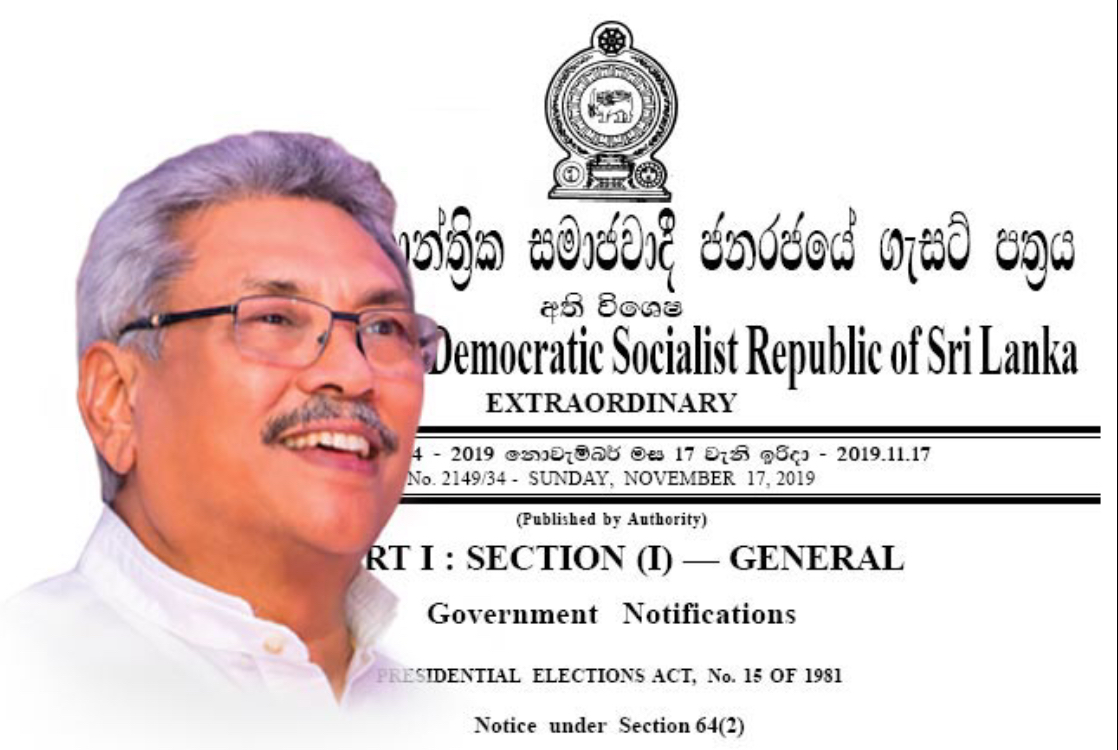The government has become notorious for changing its mind. The continuous revocation of gazette notices and other guidelines is testimony to this. The latest casualties are the sticker system which was adopted to monitor travelers into the city when travel restrictions are in place and a decision about the travel restrictions itself. The stickers were a flash in the pan. They were done away with on the same day they came into effect on a directive of the President who had reportedly said it was not a practical measure to enforce. The millions of rupees that would have cost the government to print the stickers were lost in the nano second it took the President to make his unilateral decision.
The end date of the current travel restrictions is round the corner and the public have been expectant about whether the restrictions will be extended or not. The Association of Medical Specialists and the Sri Lanka Medical Association had written to the President ahead of the date asking for an extension of travel restrictions, putting the President and his government in a position where they could have made an informed decision about the travel restrictions. The arguments put forward by the medical associations requesting an extension are based on scientific reasoning. The number of daily deaths and Covid positive cases which were being reported were increasing but they were also confident that the travel restrictions would eventually lead to a plateauing of both deaths and infections and also keep at bay the Delta variant of the virus which was found in a patient in a quarantine center. Even though the path ahead was clearly lit up by the medical associations the Army Commander, who leads the National Operations Centre for the Prevention of Covid– 19, engaged in the usual and issued contradictory and confusing statements.
Were it not for the seriousness of the situation with millions of lives at stake and plummeting public confidence, the government would have passed off for a joke. In any event it is not that far off from getting to these stakes because itshandling of Covid – 19 has put Sri Lanka among the top 20 countries in the world that are the worst for handling the Covid situation.
The government’s decision to ban the use of chemical fertilizer for agriculture and switch to the use of organic fertilizer without ensuring a robust supply of it is suffocating this country’s years old tea industry. The reputation Sri Lankahas for being a top producer and supplier of quality tea has been historical. But now, one of the few remaining feathers in her cap runs the risk of being removed with economic implications that will not only run deep but also hurt.
The effects of the ban have started to tell on the country’ tea plantations which according to a reputed source have not had stocks of fertilizer for the past four months. The lack of fertilizer is turning the green tea bud yellow, and the bud is losing its tenderness all of which will affect the quality of Sri Lankan tea and result in her losing her competitive edge in the tea market.Realising the seriousness of the situation, a SLPP politician is reportedly handing out chemical fertilizer to plantations from whatever remaining stocks there are. But this might be too little coming too late for an industry that is tottering on the verge of collapse.
It was only at this week’s Cabinet meeting that Ministers approved a proposal to pilot a project to establish atleast one organic fertilizer center for each DS division covering the 29 DS divisions in Anuradhapura and Polonaruwa. These two districts were chosen because agriculture is the major industry in these areas. Observers point out that measures such as these should have been taken much earlier to avoid situations like what the plantations are faced with now.
A plan by the government to import organic fertilizer from China, running parallel with its decision to ban chemical fertilizer is being derided by the opposition and environmentalists who point out that apart from a pecuniary advantage for some, it will not be in the interests of the country. Among reasons for their concern is that the organic fertilizer which China reportedly exports is urban waste which has been sprayed with nitrogen to pass off as organic fertilizer. Apart from fears about quality assurance, the perennial concerns about transparency or the alleged lack of it have also surfaced. The inclusion of government cronies in the massive Presidential Task Force appointed to look into creating a green socio-economy including the preparation of a road map to transition from chemical to organic fertilizer farming has triggered these concerns.
According to informed sources, bureaucrats in the Agriculture Ministry were making plans to import organic fertilizer from China even before the Cabinet decision to ban the use of chemical fertilizer. While these plans appear to have been put on hold temporarily, a consignment of organic fertilizer to the value of nearly four million rupees which was imported from India by a private company, arrived in the country early this week.
The import of organic fertilizer to Sri Lanka is banned under the regulations of the Plant Protection Act. According to leading environmental lawyer Jagath Gunewardeneliving organisms are an integral part of organic fertilizer and if it is disinfected, for instance while in quarantine, it becomes organic matter because of the risk of some pathogens remaining. (SW)



 Logging you in...
Logging you in... Loading IntenseDebate Comments...
Loading IntenseDebate Comments...

